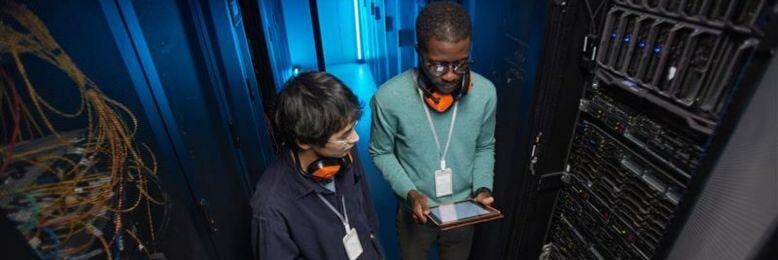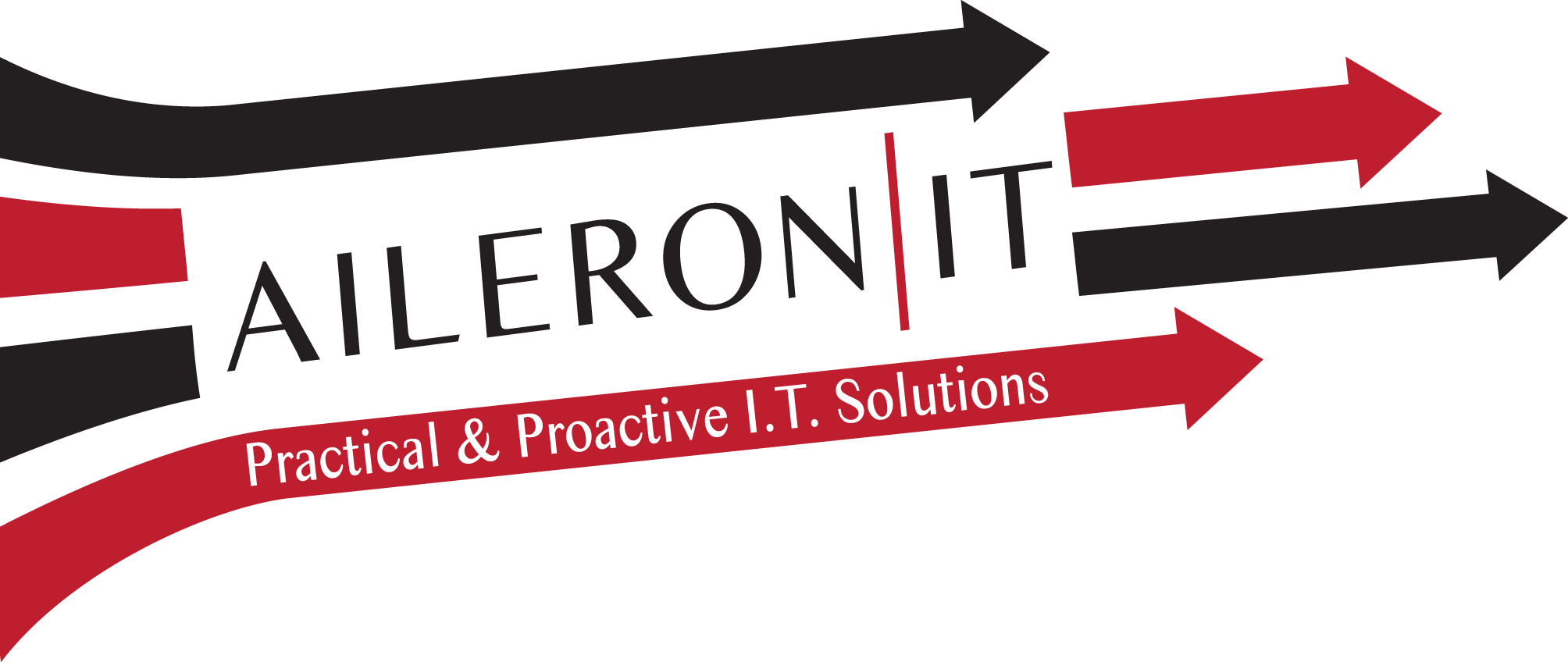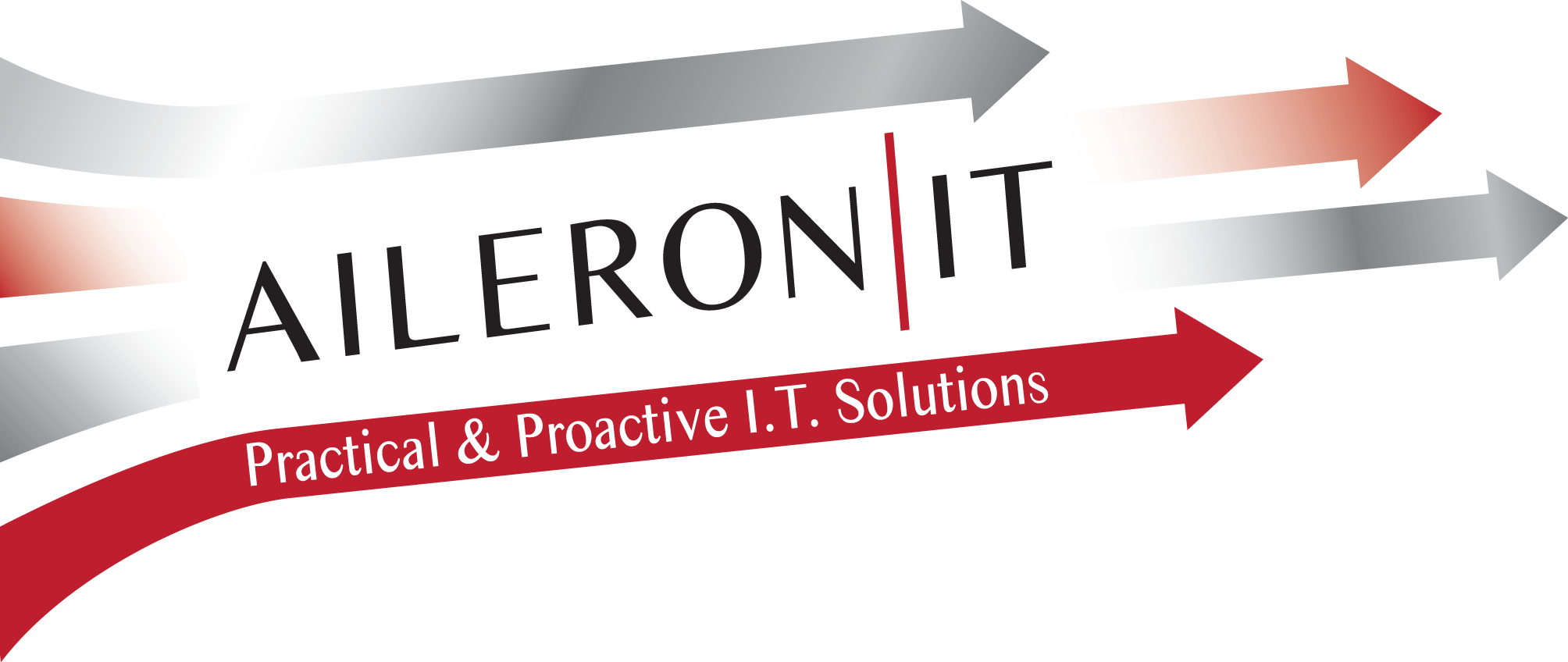6 Telltale Signs Your Business Needs a Technology Upgrade
Is your team’s productivity falling behind? Are you hearing more complaints about computer crashes and network outages in the office? Those might be signs that your technology is being left behind.
As your business grows, the technology that once served you well might start to hold you back. If you’ve noticed increasing frustration from your team or frequent technical issues, it may be time for an upgrade. Ignoring the warning signs can lead to inefficiencies, increased costs, and even security risks.
Aileron IT is a managed IT services provider (MSP) with 20+ years of experience helping countless businesses upgrade their technology stack to stay competitive. In this article, we’ll explore six clear signs that indicate your business is due for a technology upgrade.

6 Signs That Your Business Needs a Technology Upgrade
Here are the telltale signs that indicate your organization is in dire need of a tech upgrade:
1. Your Current Technology is Affecting Productivity
Has your team been complaining about how difficult it is to use your existing technology? Do they have to wait on slow systems, or are they experiencing delays due to outdated software? If so, those are clear signs that your current technology is holding you back.
Upgrading your technology can streamline workflows, reduce bottlenecks, and ultimately boost productivity. It ensures that your employees can work more efficiently, allowing them to make better use of their time so they can help drive your business forward.
2. You Experience Frequent Downtime
How often do you experience any of the following: system crashes, network outages, or service interruptions? If the answer is frequent, it’s a major red flag. Downtime can cost your business time and money. Even short periods can cause significant loss in productivity and revenue, not to mention frustration among your team.
If IT issues are a regular occurrence in your current environment, it might be time to invest in more reliable hardware, better software, or even a managed IT services provider. Those can help keep your systems running smoothly. Proactive upgrades can help avoid unplanned downtime and ensure business continuity.
3. Maintaining Your Existing Technology is More Expensive Than Upgrading
Outdated technology is often more expensive to keep running. Regular maintenance, repairs, and finding replacement parts or compatible software for older systems can be both time-consuming and resource-draining.
Try comparing the cost of maintaining your old tech versus investing in new, more efficient systems. Most of the time, you’ll find that newer technology is typically more energy-efficient, less prone to breakdowns, and often comes with support services that can save you both money and resources.
4. Cybersecurity is Becoming an Issue
It’s a fairly simple concept: if your tech is outdated, so is your security. Older systems lack modern security features, making them easier targets for cybercriminals. If you don’t want to fall victim to a preventable cyber attack, you might want to consider upgrading your systems.
Having up-to-date technology is crucial to protecting your sensitive business data. If your current systems don’t support advanced security protocols like encryption, multi-factor authentication (MFA), or regular security patches, it’s time for an upgrade.
5. You Need Workarounds to Deal with the Limitations of Your Current Tech
If employees start creating workarounds to handle your existing technology’s limitations, you have a great team of driven individuals. Unfortunately, they’re wasting their time and energy creating makeshift solutions instead of helping grow your organization. It strongly indicates that your current technology no longer meets your needs.
Dealing with workarounds and makeshift solutions can help get the work done. But over time, inefficiencies will add up and slow things down. That could lead to increased errors, frustration, and wasted time. Upgrading your technology could provide a more cohesive tech stack that helps streamline your processes. That way, your technology works with your team instead of against them.
6. Your Current Tech is No Longer Compatible with New Technology
Technology advances very quickly. The problem is that your current systems will need to keep up. Older systems will eventually become incompatible with the latest hardware and software. So, if you’re having trouble adopting new tools or integrating modern systems, it’s a clear sign that you’re falling behind.
Continuing to use old, incompatible tech will prevent you from taking advantage of emerging technologies that could provide significant benefits to your organization. Ensuring your systems are compatible with the latest tech ensures you stay competitive, helping future-proof your organization.

Need Help Modernizing Your Technology?
Recognizing the signs that your technology needs an upgrade is crucial to stay competitive. It also helps prevent costly downtime, security risks, and inefficiencies that can harm your organization. Investing in the right upgrades doesn’t just mean you’re solving problems; it also means you’re setting your organization up for long-term success.
If you recognize any of the signs we mentioned above, it might be time to take action. At Aileron IT, we specialize in helping businesses modernize their tech to stay ahead of the competition. Contact us today to discuss how we can support your technology upgrade and keep your business running smoothly.

